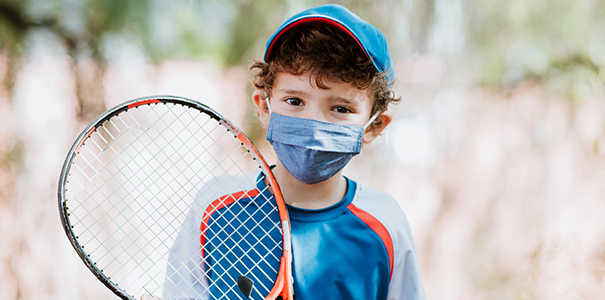UNC Active Schools Institute Receives $125,000 to Evaluate Physical Education Pilot Program and Develop Re-Entry Guidelines

December 8, 2020
The Active Schools Institute at the University of Northern Colorado has received two grants totaling $125,000 from the Colorado Department of Education (CDE) to improve the quality of physical education and physical activity opportunities for K-12 students in Colorado.
Health and Wellness Through Comprehensive Quality Physical Education Instruction Pilot Program ($90,000 grant)
Currently, there are no requirements for K-12 physical education in Colorado. In May of 2019, a bill was passed and signed into law to resolve this with a part of the bill including a three-year grant to create and implement a physical education pilot program for Colorado schools.
UNC’s role is to evaluate how the pilot program is performing in two elementary and two middle schools that are part of three school districts (Thompson School District, Denver Public Schools and Center Colorado). Approximately 1,000 students will be evaluated over the three-year period. The pilot program includes daily physical education versus the varied and often minimal offerings of physical education that currently exist in Colorado schools.
The evaluation will compare data before and after the program is implemented to see if there are improvements in student classroom performances, fitness outcomes (cardiovascular endurance, muscular strength) and other health and wellness areas (e.g., mental health and sleep).
Jaimie McMullen, Ph.D. is the principal investigator, and Brian Dauenhauer, Ph.D., and Jennifer Krause, Ph.D., are the co-principal investigators; all are associate professors of Sport and Exercise Science at UNC. Xiaoping Fan and Taemin Ha, doctoral students in UNC’s Physical Education and Physical Activity Leadership program, are assisting by developing data-collection practices and collecting and analyzing data before and after the pilot program is implemented.
Data collection of the students in those participating school districts before the pilot program begins will occur in the spring. Then, those schools will implement the pilot program in the fall of 2021, and McMullen and her team will gather new data from the fall of 2021 to 2023.
 “We’re really excited and in a good position to do an evaluation of the pilot,” McMullen
said. “The results of the pilot are significant because there are currently no requirements
in Colorado for K-12 physical education. The hope is that the results will inform
state policy and lead to better requirements for physical education in the state.”
“We’re really excited and in a good position to do an evaluation of the pilot,” McMullen
said. “The results of the pilot are significant because there are currently no requirements
in Colorado for K-12 physical education. The hope is that the results will inform
state policy and lead to better requirements for physical education in the state.”
School Re-Entry Guidelines for Physical Education and Physical Activity ($35,000 grant)
The COVID-19 pandemic continues to affect many areas of society including education and, more specifically, physical activity in K-12 schools. As schools continue to alter their classroom modalities in teaching students, it’s important to ensure student health and safety are prioritized while still providing a high-quality education to them.
The Centers of Disease Control (CDC) provided funding to 16 states through the School Health Partners grant program to safely teach physical education during the pandemic, and Colorado was one of the selected states. UNC received the funding through the CDE in October to develop guidelines and associated statewide trainings in the spring for schools and their stakeholders, such as teachers, to learn best practices for safely offering physical education and physical activity during the COVID-19 pandemic. This will include safety precautions and mitigation efforts for physical education no matter what format the class is taught in: in-person, hybrid or virtual environments.
For example, in-person physical education recommendations include moving away from contact sports, such as basketball, and moving toward individualized/dual sports, such as racket sports, where there is no contact. For virtual learning, recommendations include balancing screen time and active time for students to ensure that they’re still getting physical activity while learning remotely.
Another important part of the guidelines involves ensuring that equity, inclusion and accessibility for vulnerable student populations are included, such as students who have chronic conditions, are experiencing homelessness, are in foster care and/or live in rural communities.
“There are guidelines out there from national agencies and other schools, but these guidelines that we’re working on will be specific to Colorado and circumstances in our schools,” McMullen said. “We consulted with several physical education teachers in the state in order to develop this guidance with their needs in mind.”
McMullen and Krause are the principal investigators for this grant, and Dan Diaz Gilligan, a graduate student in the Colorado School of Public Health at UNC, assisted with conducting a needs assessment and developing the document template for the guidelines.
“UNC has always prided itself on its Physical Education Teacher Education program, and we’re always looking for ways to connect and give back to the community,” McMullen said. “UNC has the only physical education graduate program in the state, and, so, to have our students do authentic research and be involved in projects like these helps better prepare them for their future roles in physical education.”
Learn more:
- Physical Education and Physical Activity Leadership program
- Sport and Exercise Science
- Active Schools Institute
—Written by Katie Corder

